Iranians, Muslims in other countries celebrate Eid al-Fitr at end of Ramadan
Muslims in Iran and many other countries are celebrating Eid al-Fitr at the conclusion of the holy fasting month of Ramadan, after the new moon of the lunar month of Shawwal was sighted the previous night.
Naqareh drums were played at the holy shrine of Imam Reza (AS), the eighth Shia Imam, in Iran's northeastern city of Mashhad on Wednesday morning, and Muslim worshippers who had fasted for a month took part in Eid prayers there and across the country early in the morning of the occasion of the festive event, which marks the end of Ramadan – the holiest month in the Islamic calendar.
In the capital, Tehran, people gathered at the Imam Khomeini Mosalla (Congregational Prayers Site) to perform Eid al-Fitr prayers. Leader of the Islamic Revolution Ayatollah Seyyed Ali Khamenei led the prayers.
Ayatollah Seyyed Ali Khamenei leads Eid Al-Fitr prayers in Tehran https://t.co/BnXVevx2py
— Press TV 🔻 (@PressTV) April 10, 2024
Along with Iran, Saudi Arabia, Turkey, Yemen, Qatar, the United Arab Emirates, Egypt, Algeria, Bahrain, Iraq, Kuwait, Palestine, Lebanon, Syria, Tunisia, Senegal, Sudan, Burkina Faso, Ivory Coast as well as Mauritania are celebrating Eid al-Fitr on Wednesday.
Eid al-Fitr is an important religious holiday celebrated by Muslims around the world. It marks the conclusion of the 29 or 30 days of dawn-to-sunset fasting during the entire month of Ramadan.
The occasion falls on the first day of the 10th lunar calendar month of Shawwal, the start of which varies based on the sighting of the new moon by local religious authorities.
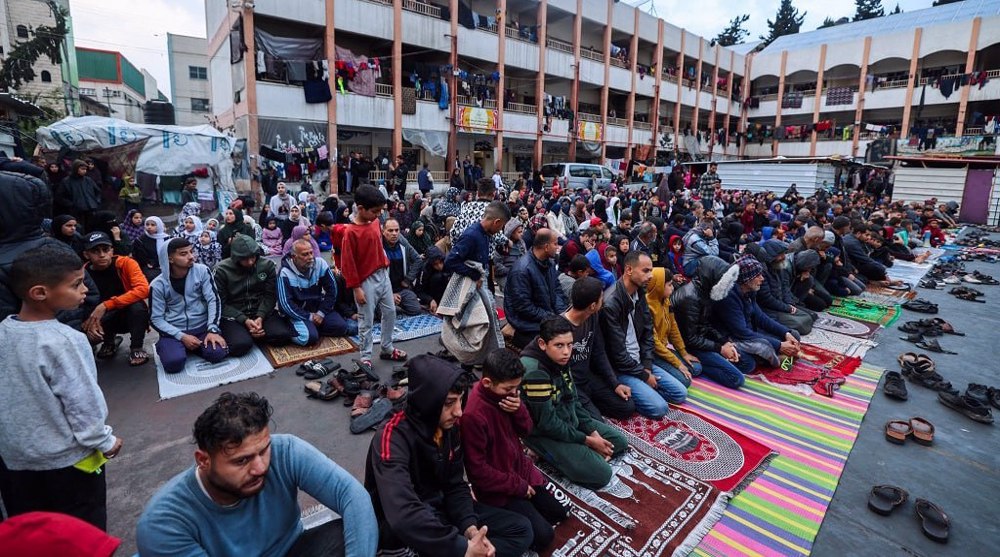
Eid al-Fitr has a particular Salat (Islamic prayer) which is generally offered in an open field or a large hall with congregation in attendance.
Tens of thousands of Palestinians perform Eid prayers in al-Aqsa Mosque
More than 60,000 Muslim Palestinian worshipers performed Eid al-Fitr prayers at the sacred al-Aqsa Mosque compound on Wednesday, despite Israeli restrictions.
A large number of Palestinians visited the Old City of occupied al-Quds since the early morning hours to participate in Eid prayers.
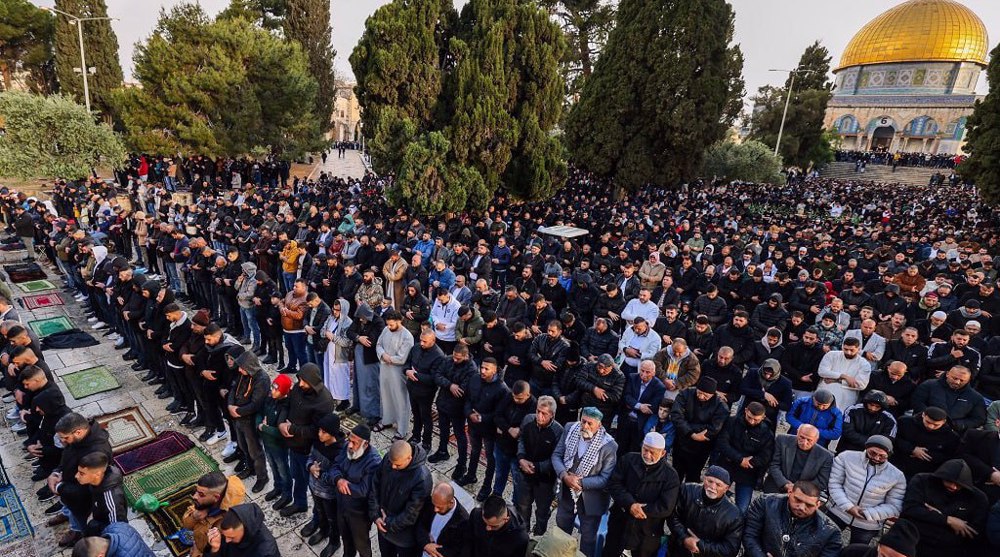
The Islamic Endowments Department in al-Quds indicated that a number of them, who were forcibly removed from al-Aqsa Mosque by Israeli forces, performed Eid prayers in the streets surrounding the mosque.
Elsewhere in the war-ravaged Gaza Strip, Palestinians performed Eid al-Fitr prayers on the ruins of mosques destroyed by Israeli offensives, in school shelters, where displaced people are taking refuge in, and in public squares.
In the city of Rafah in the southern Gaza Strip, displaced people performed the prayers in shelter schools and near displacement tents.
Several relief organizations took the initiative to distribute sweets and toys among children in an attempt to light up their face with a smile amid difficult circumstances. Eid prayers were also held on the ruins of al-Farouq Mosque in Rafah.
In Jabalia camp, north of the Gaza Strip, worshippers performed the prayers in public squares in light of the rain and cold weather.
VIDEO | Struggles of Palestinian women amidst war, displacement
VIDEO | Hezbollah rains attack drones down on elite Israeli brigade
VIDEO | US biased mediation fails
Leader: All captains of criminal, Zionist, terrorist gang must be prosecuted
Iran further raises its oil prices for Chinese buyers: Report
Iran to launch major pressure-boosting projects in South Pars
VIDEO | Escalation amid ceasefire talks
EU's Borrell says ICC arrest warrants for Israeli leaders binding


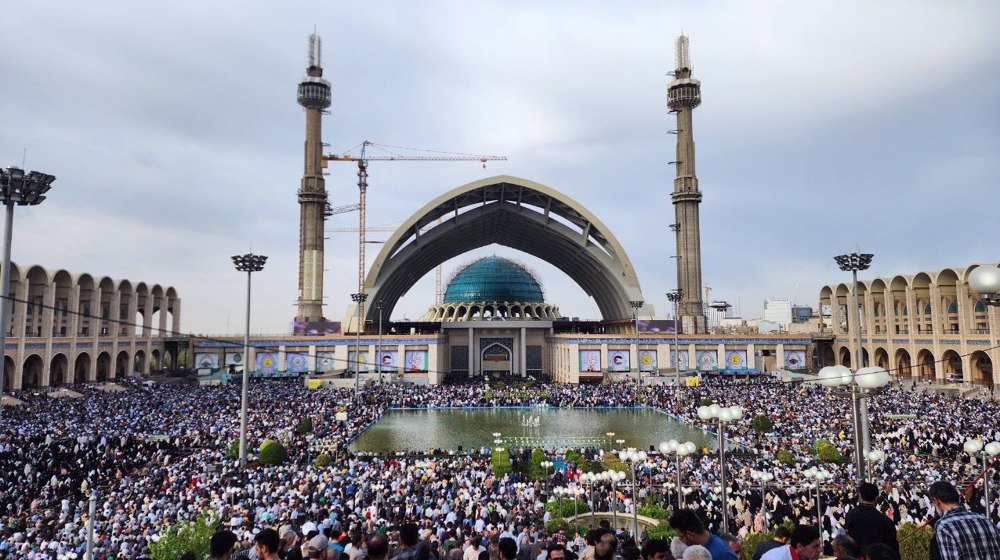
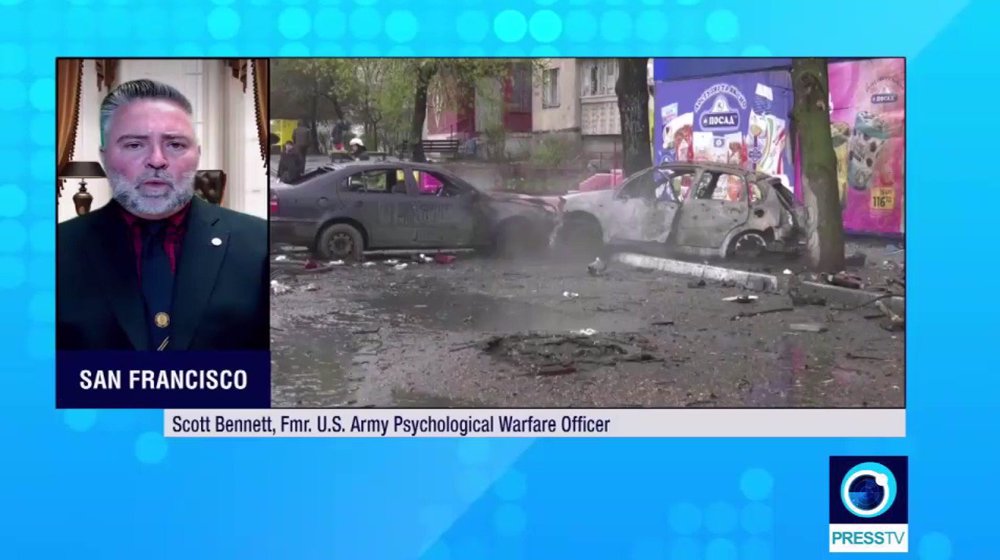
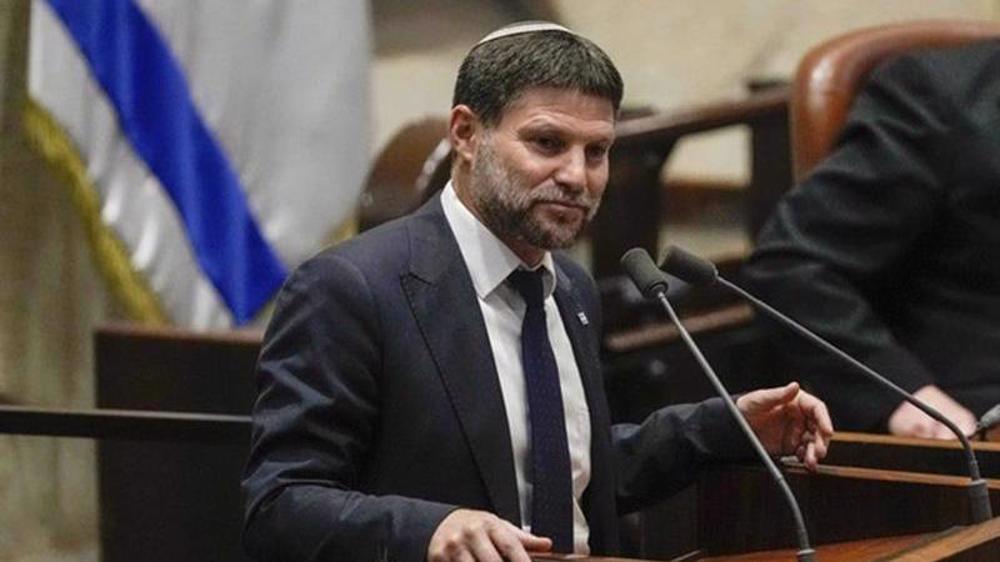
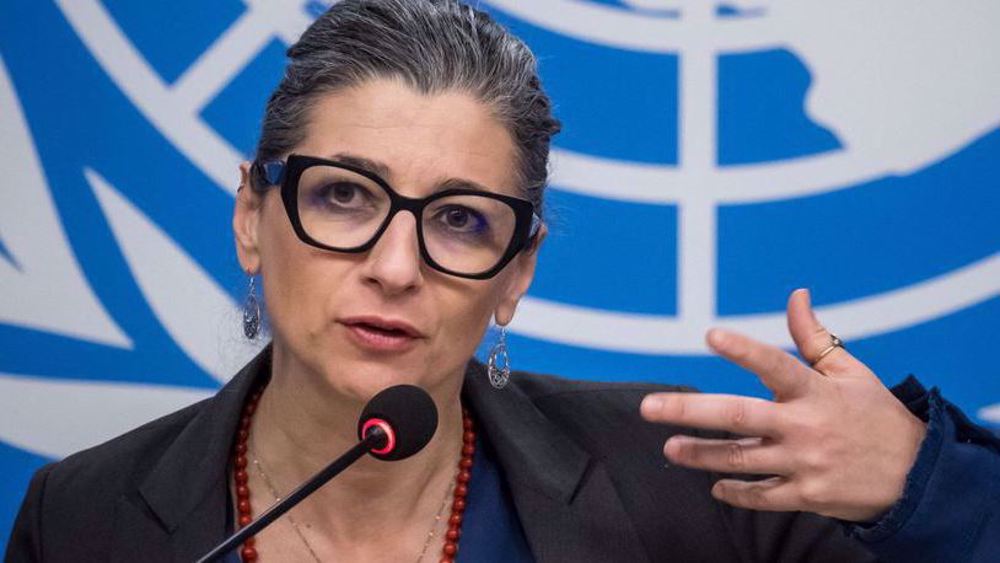



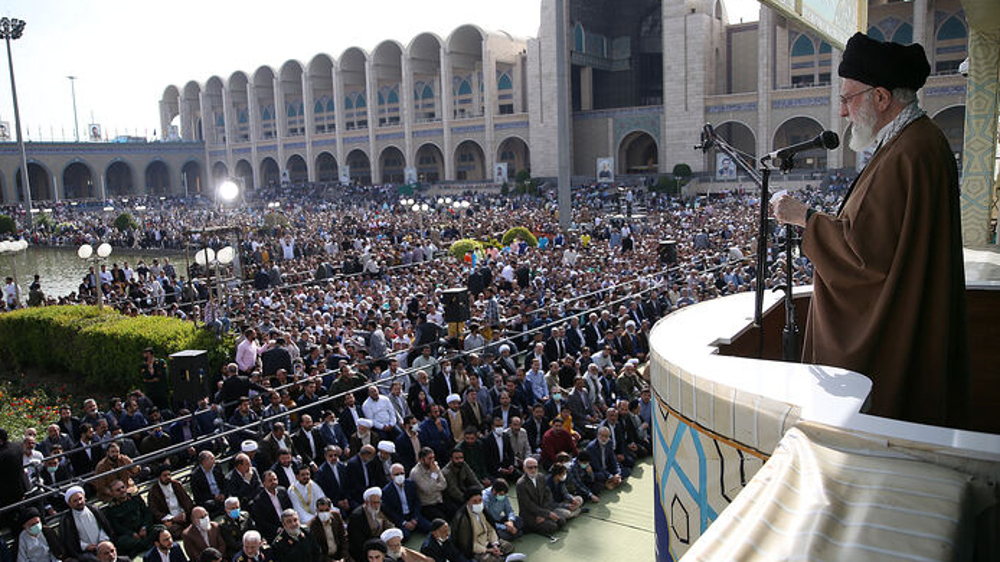
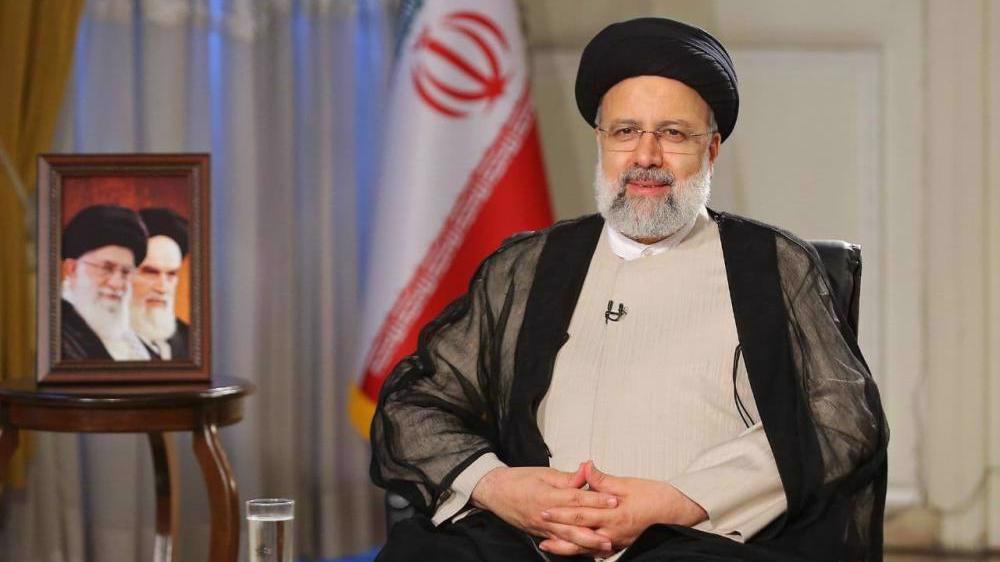
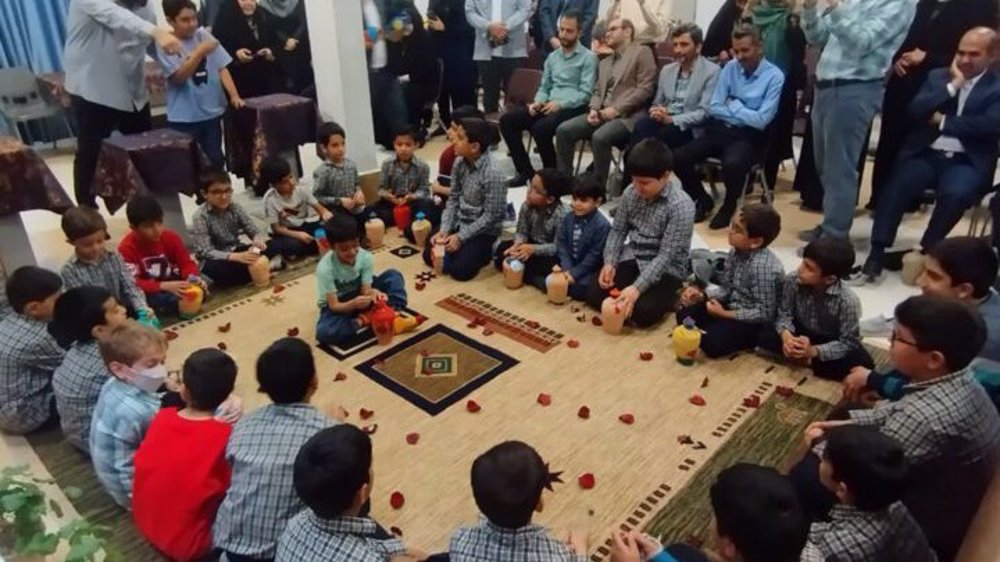
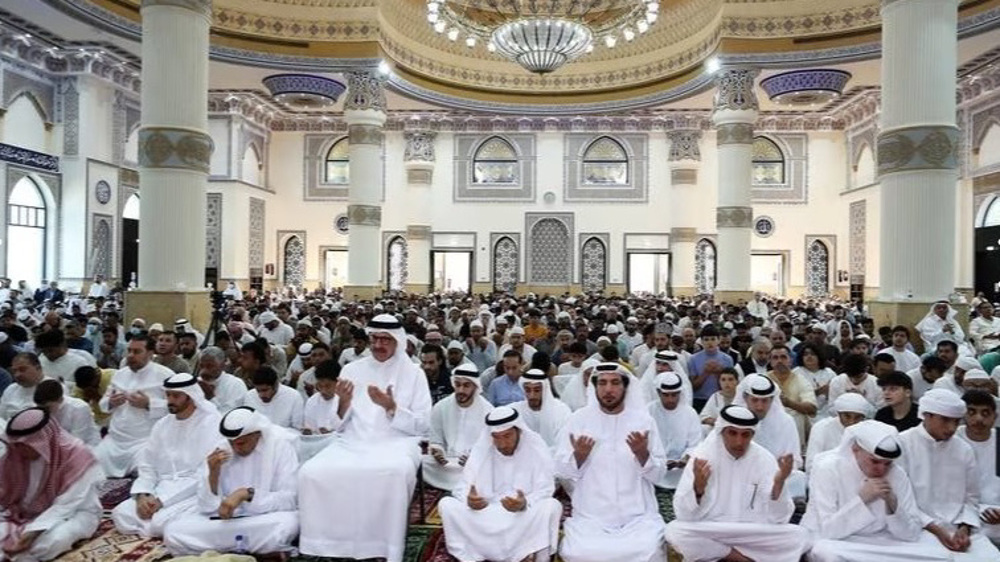

 This makes it easy to access the Press TV website
This makes it easy to access the Press TV website